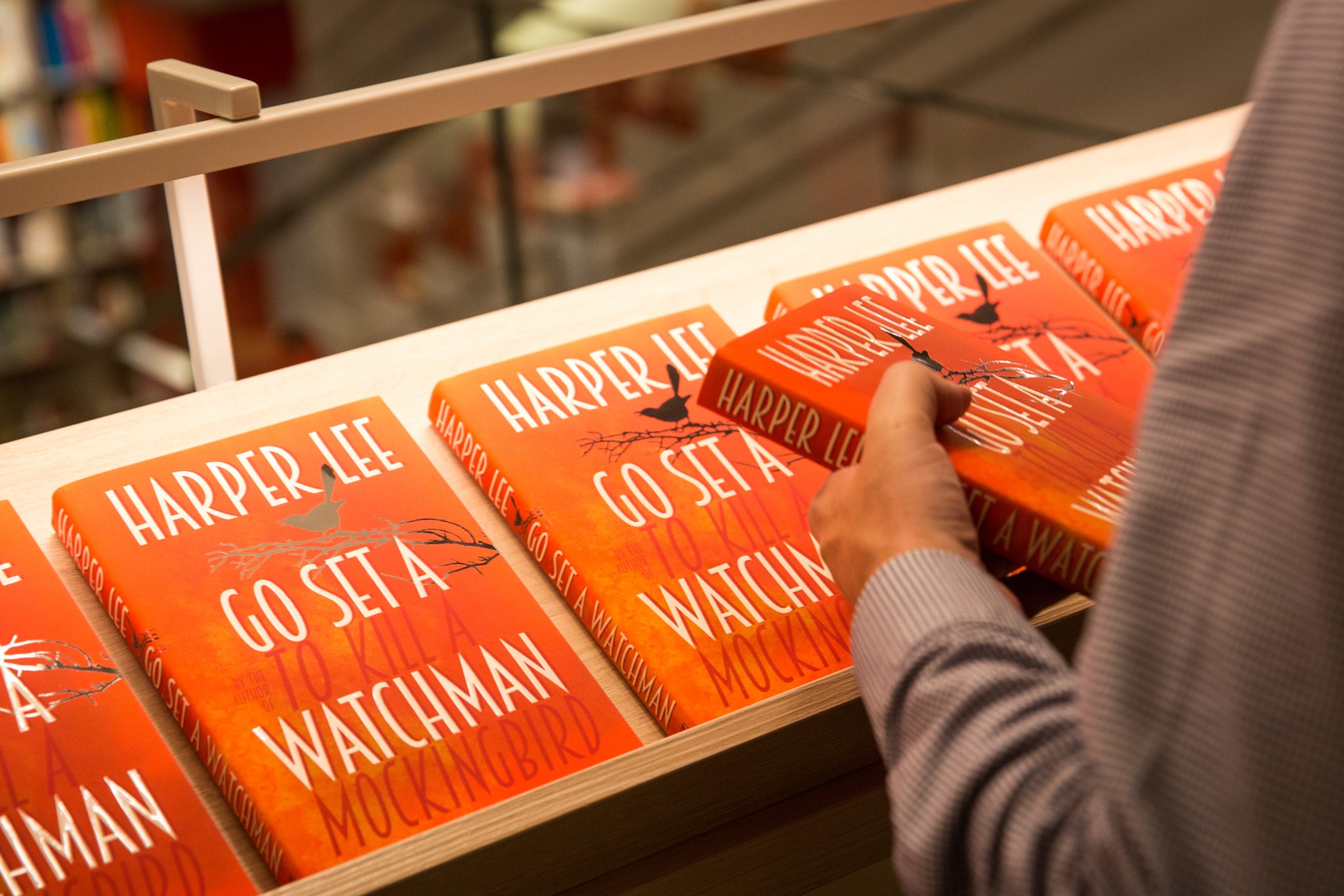Go Set a Watchman, by Harper Lee - book review: Not as good as Mockingbird but what is?
William Heinemann - £18.99

Whenever anyone asked Joseph Heller why he’d never written a novel as good as Catch 22, he replied, with a twinkle: “Well, who has?” Something similar could have been added as an epigraph to this 58-year-old, “new” novel by Harper Lee, except of course that nothing has been added or altered since she wrote it in 1957.
In a story as strange as fiction, that original manuscript was reworked with an editor until it was finally published as To Kill a Mockingbird and became one of the most cherished novels of the 20th century, and its hero, Atticus Finch, a byword for moral courage. Last year, that first draft was controversially “rediscovered”, and now it has been published as a standalone novel. It can only be reviewed in that context, and let’s be honest, it is not as good as Mockingbird. Well, what is?
It begins with Scout, now 26 and using her given name Jean Louise, revisiting Maycomb County. She lives in New York, doing something fulfilling but unspecified, and the good news is that she’s just how Scout should have grown up: “She still moved like a 13-year-old boy and abjured most feminine adornment”, and she has a lovely boyfriend whom she’d rather not marry because marriage sounds completely dreary. The first shock comes on page 13: Jem, her beloved brother, is dead. What’s more, Calpurnia has retired; their childhood home has been turned into an ice cream parlour; and there is no Boo Radley! The neighbourhood that lives so vividly in readers’ imaginations, with its blue jays, front porches, and mad dogs, does not exist.
Best summer reads 2015
Show all 23This is not the worst of it. News leaked out pre-publication of this novel that had some Mockingbird fans vowing not to read a page of it: our beloved Atticus, it turns out, is a racist. “Do you want Negroes by the carload in our schools and churches and theaters,” he asks. “Do you want them in our world?” The scene in which Jean Louise sneaks into the “colored balcony”, where she and Jem used to watch their father in court, and hears such shocking language that she is physically sick, is as appalling to the reader. “A man who has lived by truth – and you have believed in what he has lived – he does not leave you merely wary when he fails you, he leaves you with nothing,” she thinks. Her faith in her father has been well-signalled by this point, but would the reader share so viscerally Scout’s sense of betrayal if we hadn’t also looked to Atticus as a moral touchstone since 1960?
Early readers have speculated on how the Atticus of Watchman became the Atticus of Mockingbird. History shows that Lee’s editor advised her to focus on the childhood flashback sections – which are lovely, especially one about heaven being full of bananas – and in the process it clearly became a very different novel. It certainly did need editing, particularly a later section of ranting about “the Supreme Court decision” that is impenetrable now, and a sort of resolution that doesn’t really satisfy. There are also some dud phrases that a decent editor could have cleaned up easily, and one nasty scene of domestic violence whose apparent justification by the author just wouldn’t be acceptable now. But there are some flashes of genius, too: the scene in which Scout visits Calpurnia and “she sat there in front of me and she didn’t see me, she saw white folks” is heart-breaking, and there are some delicious little sketches of minor characters that show all the wit of Mockingbird.
There are also several themes which are frighteningly resonant in 2015. Atticus’s smug reasoning, “so far in my experience, white is white and black’s black …” sounds like some reactions to last month’s Supreme Court ruling on same sex marriages. The language Scout hears in the courthouse is comparable to some of the harsher modern rhetoric about immigration. And the racial tensions of the 1950s will be sadly familiar to modern, American readers.
My favourite scene is at “a coffee”, where our rebellious Scout must make small talk with a bunch of married former acquaintances whom she deliberately hasn’t seen since school. Lee’s précis of their vapid conversation is hilarious, feminist and wickedly modern. “I should like to take your head apart, put a fact in it, and watch it go its way through the runnels of your brain until it comes out of your mouth,” thinks Scout, as the ladies parrot their husbands’ opinions on Catholics and Communism.
With a different editor, on a different day, what sort of novel might Lee have written? An early feminist classic? None at all? Mockingbird became a timeless story about justice and compassion; this darker, more political novel is about growing up and killing your gods. It is let down by the lack of a thorough edit but worth reading all the same. Not as good as Mockingbird … but we knew that.
Subscribe to Independent Premium to bookmark this article
Want to bookmark your favourite articles and stories to read or reference later? Start your Independent Premium subscription today.

Join our commenting forum
Join thought-provoking conversations, follow other Independent readers and see their replies